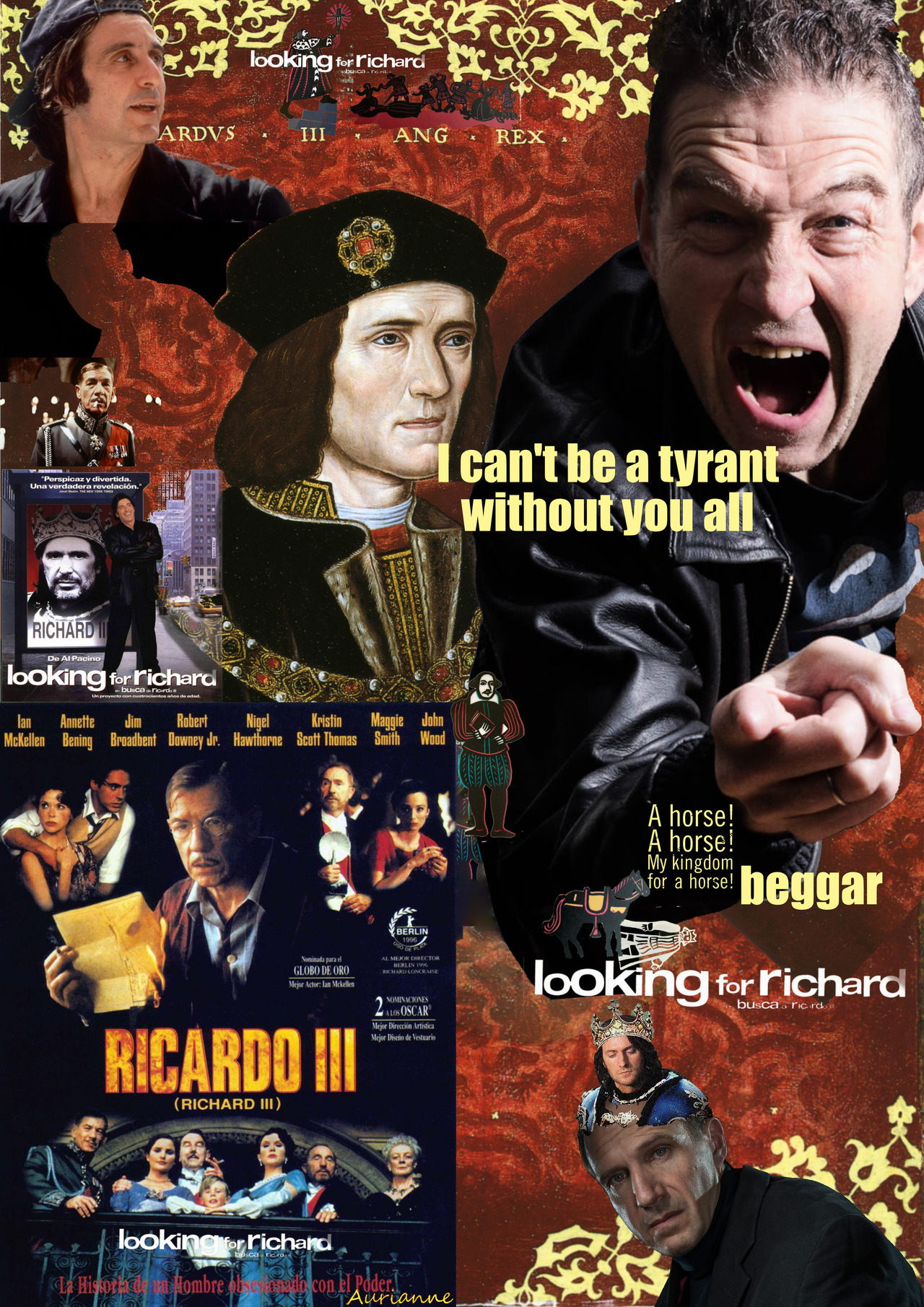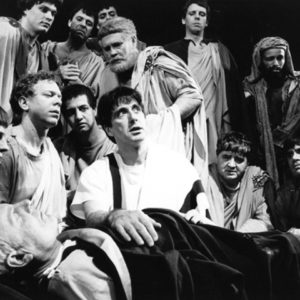La historia de un hombre obsesionado con el poder
Looking for Richard (1996): https://en.wikipedia.org/wiki/Looking_for_Richard
“The film is Pacino’s directorial debut. It is both a performance of selected scenes of William Shakespeare’s Richard III and a broader examination of Shakespeare’s continuing role and relevance in popular culture. The film was featured at the Sundance Film Festivalin January 1996 and it was screened in the Un Certain Regard section at the 1996 Cannes Film Festival”.
In the documentary film by Al Pacino, “Looking for Richard” means American actors trying to understand the main character of Richard the III and thus all the other characters he seems to manipulate and control. But any company of actors would have to discuss and make research about the play, because it is a very intricate one.
I like the expression “Looking for Richard” because it could also mean that the tyrant hides himself, and that would, for sure, be behind other people. He does not do the evil deeds himself. And, of course, those who do act, doing the mischief Richard wants, also hide themselves behind Richard’s back… How should we look at Richard? He’s just using words in a clever way, like an actor. The more he comes closer to the crown, the more he begs for other people to act for him, and consequently it is easier for him to become king. Of course, a few deeds have to be executed by himself like, for example, the humiliation he inflicts on Lady Ann.
“Looking for Richard” is also very meaningful to me because the statement urges us to pay attention to this specific character in this specific play. Richard Gloucester is a discontent villain, not really the character you want to identify with. But maybe, you should have a look at the fact that the play was written in around 1593 and the real Richard the III lived from 1452-1485. So why are we still interested in that? Why do we still produce films, plays and books about this? Why should we look at it?
Is it because of its wonderful depiction of his rise to power and his short reign as a tyrant. “A horse, a horse, my kingdom for a horse” means the king cannot even get a horse; he has absolutely no power when nobody obeys him. Unfortunately, these kind of tyrants have existed in the past and still exists nowadays. This play helps us understand tyrants are just beggars, seeking other people’s actions. It is a reminder that tyranny is never the act of one person alone.
And also because: “Even though the audience is likely to be repulsed by Richard’s actions, his gleeful, brilliant, revealing monologues cause most viewers to like him and even hope that he will succeed despite his obvious malice.” (http://www.sparknotes.com/shakespeare/richardiii/themes) There will always be people attracted to malice, or obeying it because they are scared or because of their greed or whatever their reason might be and these people are those who make tyranny possible. If you just confront the tyrant directly, these people will protect him and will not raise an eyebrow. In the play, Queen Elizabeth’s characters shows that. She does not bother Richard Gloucester at all.
However, he is powerless when he is left alone on the battlefield. (The dream before the battle helps to underline his weakness).
There is a recurrent message in Shakespeare’s plays: Never underestimate the power of words.
Richard III (1995): http://www.imdb.com/title/tt0114279/





